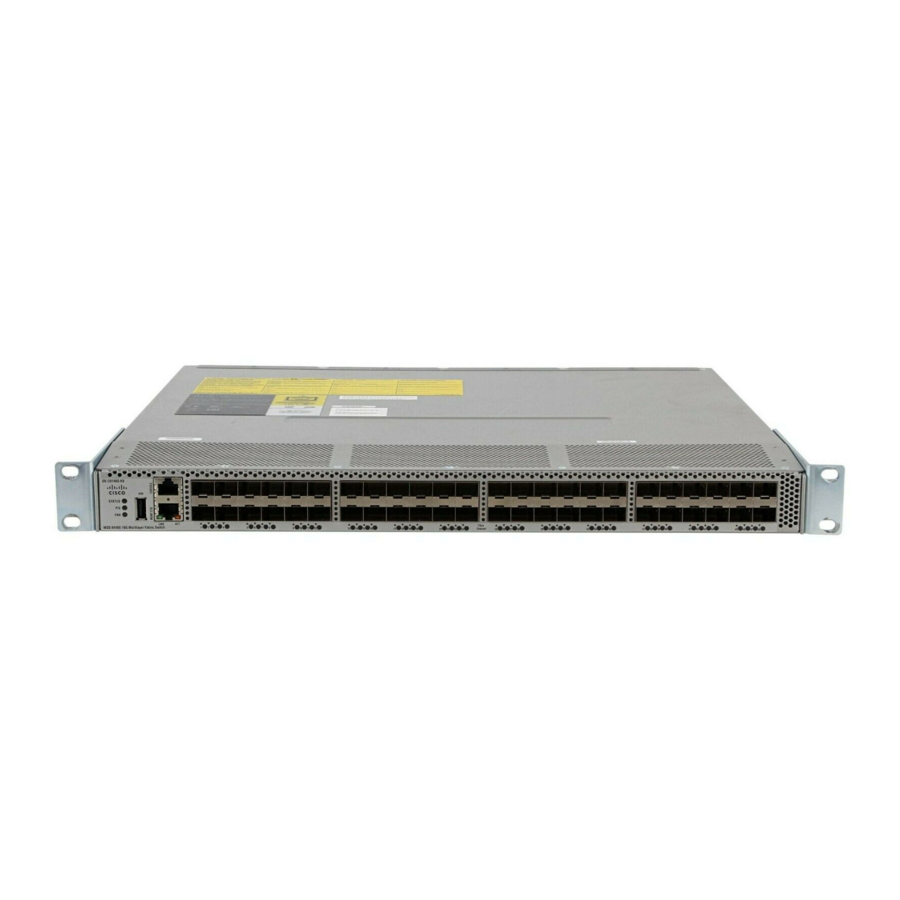To configure IP for subsequent use by iSCSI initiators:
1.
Enter configuration mode: switch# config terminal
2.
Enter the interface configuration mode on the Gigabit Ethernet interface (slot 2, port 2):
switch(config)# interface gigabitethernet 2/2
3.
Enter the IP address (33.33.33.170) and subnet mask (255.255.255.0) for the Gigabit Ethernet
interface: switch(config-if)# ip address 33.33.33.170 255.255.255.0
4.
Enable the interface: switch(config-if)# no shutdown
Presenting iSCSI hosts as virtual Fibre Channel hosts
Because you are converting SCSI commands to and from an iSCSI IP server to Fibre Channel storage,
the C-Series IP Storage Services Modules (IPS-4, IPS-8), Multi-protocol Services Module (14/2), and
MDS 9216i switch must map the ISCSI server's IP address to a unique WWPN that the Fibre Channel
Storage recognizes.
The IP Storage Services Modules (IPS-4, IPS-8), Multi-protocol Services Module (14/2), and MDS 9216i
switch have two modes to present iSCSI hosts in the Fibre Channel fabric: transparent mode and proxy
initiator mode. HP recommends the use of transparent mode as described in this guide.
The benefit of transparent mode is that it allows a finer level of access control configuration. In transparent
mode, each iSCSI host is presented as one virtual Fibre Channel host on the Fibre Channel fabric.
Because of the one-to-one mapping of IP-to-WWPN translation from iSCSI to Fibre Channel, each host
can have different zoning in the Fibre Channel SAN or LUN access control on the Fibre Channel storage.
Transparent mode static mapping
The C-Series IP Storage Services Modules (IPS-4, IPS-8), Multi-protocol Services Module (14/2), and
MDS 9216i switch have two modes of mapping IP addresses: transparent-mode dynamic mapping
and transparent-mode static mapping. Because the Microsoft iSCSI Initiator does not support Dynamic
partitions, you must configure using transparent mode static mapping. Static mapping must be enabled
for each iSCSI Initiator to guarantee persistent LUN mapping from the HP Fibre Channel controller to the
iSCSI Initiator. See
Installing an iSCSI Initiator on a Windows server
The IP host or iSCSI Initiator uses the Microsoft iSCSI Initiator to enable target resource recognition and
attachment to the C-Series IP Storage Services Modules (IPS-4, IPS-8), Multi-protocol Services Module
(14/2), and MDS 9216i switch over IP. The Microsoft iSCSI Initiator is configured with the Gigabit
Ethernet IP address of each iSCSI interface running on the C-Series IP Storage Services Modules (IPS-4,
IPS-8), Multi-protocol Services Module (14/2), and MDS 9216i to which the host is to transport SCSI
requests and responses. The iSCSI Initiator sees the storage resources (LUNs) as if they were local
drives attached directly to the server.
HP configuration utility for network interface cards
With HP ProLiant servers, an iSCSI Initiator may use multiple NIC cards with HP teaming enabled for
failover. The term team refers to the concept of multiple network adapters working together as a single
network adapter, commonly referred to as a virtual network adapter.
Setup
Download the iSCSI Initiator from Microsoft's download page, and follow the installation instructions.
The download includes copying the user guide to your local disk. You can refer to the user guide in
C:\Program Files\Microsoft iSCSI Initiator\uguide.doc for further information.
The first use of the Microsoft iSCSI initiator, requires a manual log in to the Available Targets. After the
Available Target logins are completed with the Restore Connection button enabled, the iSCSI Initiator
automatically logs in whenever the server powers up or reboots.
16
Configuring transparent mode static mapping
for instructions.

